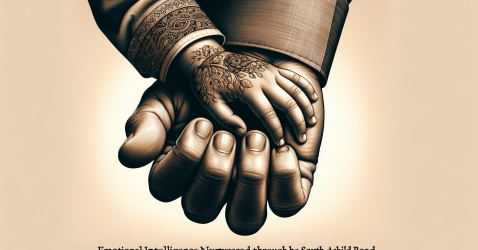What Role Does Spirituality Or Religious Practice Play In Stress Management?
In today’s fast-paced and increasingly stressful world, many people are searching for effective ways to manage their stress levels. One avenue that has gained attention is the role of spirituality or religious practice in stress management. Whether it be through meditation, prayer, or connection with a higher power, individuals are turning to these practices as a source of solace and calming influence. This article explores the potential benefits of incorporating spirituality or religious practice into one’s life to alleviate stress and promote overall well-being.

The Connection Between Spirituality and Stress Management
Spirituality and religious beliefs can play a significant role in managing stress by providing a sense of purpose, meaning, and direction in life. When facing challenging situations, having a strong spiritual foundation can help individuals find comfort, peace, and resilience. The connection between spirituality and stress management is multifaceted, influencing coping mechanisms, emotional support, physical health, mindfulness, lifestyle factors, community and social support, and even coping with major life events and trauma.
How spiritual beliefs can provide a sense of purpose and meaning
Spirituality encompasses the search for a deeper meaning in life and the belief in something greater than oneself. These beliefs can provide individuals with a sense of purpose, guiding them through difficult times and helping them navigate the complexities of life. By aligning their actions and goals with their spiritual beliefs, individuals can find a sense of fulfillment, which can be instrumental in managing and reducing stress.
The influence of spirituality on coping mechanisms
When faced with stressors, individuals with strong spiritual beliefs often rely on various coping mechanisms rooted in their faith. Prayer, meditation, and other forms of spiritual practices can serve as powerful techniques for stress reduction. By connecting with their spiritual selves and engaging in these practices, individuals can find solace, peace, and a renewed sense of hope.
Spirituality as a source of emotional support
One of the significant benefits of spirituality in stress management is the emotional support it provides. Belonging to a religious or spiritual community offers a built-in support system. The camaraderie, compassion, and understanding within these communities can provide much-needed comfort during stressful times. Sharing experiences, discussing challenges, and receiving guidance from fellow believers can help individuals cope more effectively with stress and gain a sense of solidarity.
Religious Practices and Stress Management
Religious practices, such as prayer and meditation, play a crucial role in stress reduction. These practices allow individuals to quiet their minds, focus, and connect with their spiritual selves. Prayer is often seen as a form of communication with a higher power, providing comfort and reassurance. Meditation, on the other hand, offers a way to de-stress by promoting relaxation, mindfulness, and heightened self-awareness.
Importance of religious rituals and ceremonies
Religious rituals and ceremonies hold profound significance in managing stress. These practices foster a sense of community, continuity, and tradition, creating a supportive environment for individuals to connect with their spirituality. Engaging in rituals and ceremonies can help individuals feel grounded, provide a sense of belonging, and remind them of the larger purpose or meaning in their lives.
The impact of community and social support within religious frameworks
Religion and spirituality often thrive within communities that offer social support. Being part of these communities can increase feelings of belonging, foster interpersonal connections, and create a network of individuals who share similar values and beliefs. The support received from these communities and the sense of collective prayer or worship can significantly impact stress management. The knowledge that others are praying or supporting them can provide comfort and alleviate stress.
Psychological Benefits of Spirituality in Coping with Stress
Spirituality has a profound impact on mental and emotional well-being. It enhances positive emotions, fosters hope and resilience, and reduces negative emotions and distress.
Enhancement of positive emotions and well-being
Spiritual beliefs and practices have been linked to increased positive emotions, such as joy, gratitude, and contentment. Connecting with one’s spiritual self and beliefs can bring about a sense of inner peace and well-being, counterbalancing the negative emotions associated with stress. This enhanced emotional state can help individuals approach stressors with a more optimistic mindset and improve their overall quality of life.
Spirituality as a source of hope and resilience
During challenging times, spirituality can serve as a beacon of hope, providing individuals with the strength and resilience needed to face adversity. The belief in a higher power or a greater purpose can instill faith and trust in the journey, giving individuals the confidence to navigate stressful situations. This sense of hope can be a powerful tool in stress management, allowing individuals to persevere and find light during even the darkest times.
Reduction of negative emotions and distress
Spirituality has been found to reduce negative emotions and distress by providing individuals with a framework for understanding and processing their emotions. Through spiritual practices, individuals can find solace, peace, and a sense of calm amidst the chaos of everyday life. By turning to their spiritual beliefs, individuals can find comfort and reprieve from stress, leading to a reduction in negative emotions and distress.
Physical Health Benefits of Spirituality in Managing Stress
The connection between spirituality and improved overall health is evident, with numerous studies highlighting the positive effects of spirituality on physical well-being. Engaging in spiritual practices and having strong spiritual beliefs have been associated with reduced likelihood of developing stress-related physical ailments and improvements in immune function and cardiovascular health.
The connection between spirituality and improved overall health
Spirituality has been shown to have a holistic impact on overall health, encompassing physical, mental, and emotional well-being. The mind-body-spirit connection suggests that when individuals nurture their spiritual selves, it positively influences their physical health. By managing stress through spirituality, individuals can decrease the risk of developing chronic illnesses, boost their immune function, and experience overall better health outcomes.
Reduced likelihood of developing stress-related physical ailments
Chronic stress can have detrimental effects on the body, leading to various physical ailments. Spirituality can help individuals manage and reduce stress, therefore lowering the risk of developing stress-related illnesses. By incorporating spiritual practices into their daily lives, individuals can enhance their ability to cope with stress, reducing the toll it takes on their physical health.
Positive effects on immune function and cardiovascular health
Research has shown that spirituality can have positive effects on immune function and cardiovascular health. Engaging in spiritual practices, such as prayer and meditation, has been found to promote relaxation, decrease blood pressure, and improve heart rate variability. These physiological changes contribute to a healthier cardiovascular system and better overall immune function, allowing individuals to better withstand stress and its impact on their bodies.

Spirituality and Mindfulness in Stress Reduction
Spirituality and mindfulness go hand in hand, with spiritual beliefs often incorporating mindfulness practices and principles. By integrating mindfulness into their spiritual frameworks, individuals can develop self-awareness, acceptance, and cultivate mindfulness in everyday life, ultimately reducing stress levels and enhancing well-being.
Integration of mindfulness practices within spiritual frameworks
Mindfulness practices, such as meditation and deep breathing exercises, are often integrated into spiritual frameworks. These practices allow individuals to focus on the present moment, let go of worries, and cultivate a sense of inner peace. By incorporating mindfulness into their spiritual practices, individuals can better manage stress, increase self-awareness, and deepen their connection with their spiritual selves.
The role of spirituality in developing self-awareness and acceptance
Spirituality encourages individuals to develop self-awareness and self-reflection. By exploring their spiritual beliefs and understanding their values, individuals can gain insight into themselves and their reactions to stress. This self-awareness enables individuals to identify and address unhealthy coping mechanisms or patterns and make necessary changes. Acceptance, both of oneself and external circumstances, is an essential aspect of spirituality that fosters resilience and reduces stress.
Utilizing spiritual beliefs to cultivate mindfulness in everyday life
Spiritual beliefs provide a foundation for cultivating mindfulness in everyday life. By incorporating spiritual principles into daily routines and activities, individuals can find moments of stillness, gratitude, and mindfulness. Whether through prayer, meditation, or conscious acts of kindness, individuals can anchor themselves to their spiritual beliefs and find peace in the midst of a hectic world. This practice of mindfulness can significantly contribute to stress reduction and overall well-being.
The Influence of Spirituality on Lifestyle Factors and Stress
Spiritual teachings often guide individuals in making lifestyle choices that promote well-being and reduce stress. The values and principles embedded in spiritual practices can act as motivators for self-care, healthy habits, and subsequently, stress reduction.
Impact of spiritual teachings on lifestyle choices
Spiritual teachings emphasize the importance of caring for oneself and living a life aligned with one’s beliefs. These teachings encourage individuals to make choices that prioritize their physical, mental, and emotional well-being. From avoiding harmful substances to practicing moderation and seeking balance, spiritual teachings guide individuals toward lifestyle choices that promote optimal health and reduce stress.
Spirituality as a motivator for self-care and healthy habits
Spiritual beliefs often serve as motivators for individuals to prioritize self-care and establish healthy habits. By viewing the body as a sacred vessel or temple, individuals are encouraged to nourish it with proper nutrition and engage in physical activity. Similarly, spiritual beliefs may advocate for practices like getting sufficient rest, managing stress, and maintaining healthy relationships, all of which are crucial components of stress management.
The stress-reducing effects of spiritual practices on sleep and relaxation
Spiritual practices can have a significant impact on sleep and relaxation, both of which are essential for stress reduction. Prayer, meditation, and other spiritual practices can promote a sense of calmness and relaxation, providing individuals with an opportunity to unwind and rejuvenate. By incorporating these practices into bedtime routines or engaging in them during moments of stress, individuals can create a conducive environment for improved sleep and relaxation, ultimately reducing stress levels.

The Role of Community and Support in Spirituality and Stress Management
Religious communities and spiritual support systems play a vital role in stress management and overall well-being. Being part of a religious community provides individuals with social support, collective prayer, and group rituals, all of which contribute to alleviating stress and fostering a sense of belonging.
Religious communities as sources of social support
Religious communities often provide a strong sense of social support for individuals. Belonging to a community of like-minded individuals fosters a sense of camaraderie, empathy, and understanding. In times of stress, these communities can offer a safe space to share experiences, seek guidance, and find comfort in the knowledge that others understand and empathize with their struggles.
The power of collective prayer and group rituals in reducing stress
Collective prayer and group rituals within religious communities have a profound impact on stress reduction. The act of coming together to collectively pray or engage in rituals strengthens the bond among community members and invokes a sense of unity and support. Furthermore, the shared belief that prayers are heard and answered can enhance feelings of hope and provide solace during stressful times.
The role of spiritual mentors and guides in stress management
Within religious communities, spiritual mentors and guides offer guidance, wisdom, and support in navigating stress and life’s challenges. These individuals often have a deep understanding of the spiritual teachings and can provide comfort, advice, and a listening ear to those in need. Spiritual mentors act as sources of inspiration and can help individuals find solace, meaning, and practical strategies for managing stress.
Spirituality in Coping with Major Life Events and Trauma
When faced with major life events or traumatic experiences, spirituality can provide solace, guidance, and a framework for processing grief and loss. Spiritual beliefs and rituals can help individuals find meaning, navigate the complexities of their emotions, and foster healing and recovery.
How spiritual beliefs can provide solace and guidance during challenging times
Spiritual beliefs offer individuals a source of solace and guidance during challenging times. Believing in something greater than oneself and having faith in a higher power can provide comfort and reassurance. In moments of loss, grief, or trauma, individuals can turn to their spiritual beliefs and practices to find strength, hope, and a sense of direction. Whether it is through prayer, seeking wisdom from spiritual leaders, or finding solace in sacred texts, spirituality can be a guiding light during challenging times.
The role of religious rituals in aiding recovery from trauma
Religious rituals can be instrumental in aiding recovery from trauma by providing structure, meaning, and a sense of closure. These rituals can help individuals process and come to terms with their experiences, facilitating healing and growth. Rituals such as memorial services, funerals, or religious ceremonies offer individuals the opportunity to honor and remember their loved ones, seek support from their communities, and weave their experiences into the fabric of their spiritual journeys.
Spirituality as a framework for processing grief and loss
Spirituality offers a framework for individuals to process grief and loss, acknowledging the pain while also finding meaning and hope. Spiritual beliefs often encompass teachings about the cycle of life, the continuity of the soul, and the idea of eternal love or connection. These beliefs can provide individuals with comfort and reassurance that their loved ones have found peace and that they will be reunited someday. This framework helps individuals navigate the complex emotions of grief, find ways to honor the memory of their loved ones, and ultimately move forward on their healing journey.
Spirituality, Cognitive Restructuring, and Stress Reduction
Spirituality can serve as a powerful tool in cognitive restructuring, helping individuals reframe stress-inducing situations in a more positive and empowering light. By incorporating spiritual beliefs and principles into their thinking patterns, individuals can cultivate positive thinking, enhance stress resilience, and facilitate personal growth and transformation.
Using spiritual beliefs to reframe stress-inducing situations
Spiritual beliefs can provide individuals with a fresh perspective when facing stress-inducing situations. By viewing challenges through the lens of their spirituality, individuals can find meaning, purpose, and growth opportunities even in difficult circumstances. Spiritual teachings often emphasize the importance of embracing change, finding gratitude in all circumstances, and surrendering to a higher power. These principles can help individuals reframe stress-inducing situations, shifting their focus towards personal growth and empowerment.
The impact of positive thinking and reframing on stress resilience
Positive thinking and reframing are powerful tools in stress resilience, promoting mental and emotional well-being. By consciously incorporating positive thinking and reframing techniques rooted in their spiritual beliefs, individuals can cultivate a more optimistic outlook on life. This positive mindset enables individuals to approach stressors with greater resilience, adaptability, and a proactive attitude. By focusing on their spiritual principles, individuals can find strength, hope, and the belief that they can overcome any challenge that comes their way.
Spirituality as a catalyst for personal growth and transformation
Spirituality has the potential to act as a catalyst for personal growth and transformation. By integrating spiritual beliefs and practices into their lives, individuals embark on a profound journey of self-discovery, introspection, and personal development. The self-reflection, self-awareness, and acceptance fostered by spirituality can lead to profound personal growth. As individuals align their actions, choices, and perspectives with their spiritual beliefs, they are empowered to make positive changes, cultivate resilience, and transform their lives in meaningful ways.
Challenges and Controversies Surrounding Spirituality and Stress Management
While spirituality offers numerous benefits for stress management, challenges and controversies can arise in its application. Conflicts between different religious beliefs, misinterpretation of religious teachings, and exploring alternative spiritual practices are important considerations when discussing spirituality and stress management.
Conflicts between different religious beliefs and stress management techniques
Different religious beliefs and practices can conflict with one another, leading to tensions or challenges in stress management techniques. It is essential to recognize and respect the diversity of beliefs and practices in order to foster a harmonious and inclusive environment for stress management. By embracing the similarities and focusing on shared values, individuals can find common ground and learn from one another’s wisdom and experiences.
Interpretation and misinterpretation of religious teachings in stress management
The interpretation and misinterpretation of religious teachings can impact stress management practices. Religious texts, rituals, and practices are open to multiple interpretations, and individuals may differ in their understanding of the stress management techniques prescribed by their respective faiths. It is crucial to approach religious teachings with an open mind, engage in respectful dialogue, and seek guidance from knowledgeable spiritual leaders to ensure that stress management techniques are applied correctly and effectively.
Exploring alternative spiritual practices beyond traditional religious frameworks
While traditional religious frameworks offer a wealth of spiritual practices, individuals may find meaning and solace in alternative spiritual practices outside these frameworks. Exploring spirituality beyond traditional religious boundaries can bring about a broader understanding of the human experience and provide diverse perspectives on stress management. However, it is important to approach alternative spiritual practices with discernment, ensuring that they align with one’s values, beliefs, and ethical principles.
In conclusion, spirituality and religious practices can significantly impact stress management by providing a sense of purpose, coping mechanisms, emotional support, and promoting overall well-being. By incorporating spiritual beliefs into daily life, individuals can harness the power of spirituality to reduce stress, enhance resilience, and facilitate personal growth. The connection between spirituality and stress management encompasses various dimensions, including psychological benefits, physical health benefits, mindfulness, lifestyle factors, community support, coping with major life events, cognitive restructuring, and exploring challenges and controversies surrounding spirituality. By recognizing the profound impact spirituality can have on stress management, individuals can embark on a journey of self-discovery, find solace in their beliefs, and live a more fulfilling and balanced life.

















